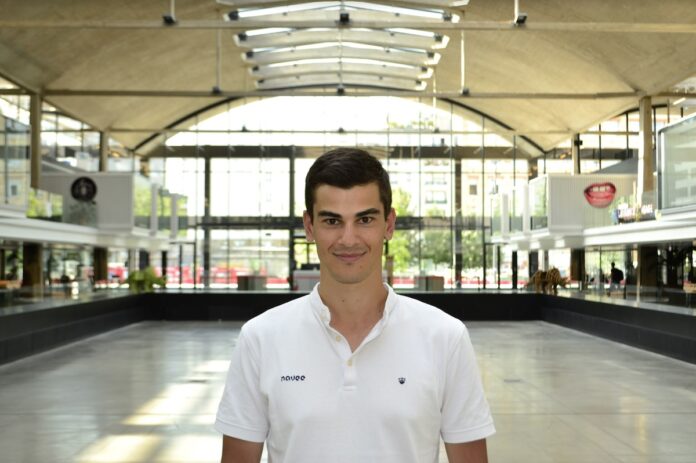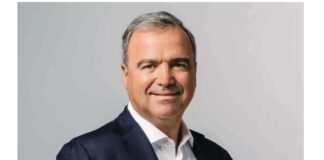Navee, a leader in AI-driven anti-counterfeiting solutions, is transforming how brands protect themselves by combining advanced algorithms with proactive risk assessment tools.
Can you provide an overview of how Navee GPT and CVAN work together to combat counterfeit production?
CVAN and Navee GPT are joining forces to revolutionize anti-counterfeiting strategies by shifting from reactive to proactive measures. CVAN, the Collaborative Visual Authentication Network, adopts a proactive approach by analyzing images and automating terms and conditions at the upload stage. This automation significantly reduces the manual effort required to identify counterfeit listings, allowing platforms to efficiently detect counterfeit content without relying solely on IP rights. While this approach addresses most counterfeit issues, Navee GPT complements it by employing a risk score algorithm to assess high-risk listings. This ensures continuous pre-moderation with human-level precision, operating round the clock every day of the year. Together, these technologies streamline counterfeit detection, minimizing the need for reactive checks and pushing the industry toward a more proactive stance against counterfeit production.
Could you share some success stories or case studies where Navee’s solutions have significantly impacted a brand’s fight against counterfeits?
A notable case involves a recent client with whom we’ve collaborated for about a year. When we began, 65% of the listings on major marketplaces like Amazon were counterfeits. This meant that nearly 7 out of the top 10 listings for the brand on reputable marketplaces were not official products. Now, that number has dropped to zero.
It’s not just about the numbers; it’s about visibility and consistently measuring it. Our core focus on maintaining cleanliness defines both our success and that of our clients. We ensure that platforms remain clean, so users cannot accidentally or intentionally purchase counterfeit products.
With the capability to process up to 15,000 counterfeit cases per month, how do you manage the scalability and potential data privacy concerns?
Managing scalability is achieved through Navee’s proprietary indexing technology, which scans the internet, identifies relevant commercial content, and structures it for processing and IP rights infringement detection. Data privacy is a priority; any listing not deemed risky for infringement is promptly deleted. We focus exclusively on commercial data with potential infringements rather than random data.
Listings added to our platform are deleted if no action is taken within 30 days. Our goal is not to accumulate data but to create a counterfeit-free web. This approach guides our data management decisions, allowing us to gather relevant content to protect users, customers, and brands. By quickly removing non-risky data, we prevent server overload, reduce costs for both us and our customers, and address data privacy concerns.
What role does human moderation play in your AI-driven approach, and how do you see this balance evolving in the future?
In an AI-driven approach, humans act as teachers. Current technologies still require a lot of guidance. The role of humans is to help tools understand and recognize easy-to-identify infringements. This guidance allows the AI to perform effective pre-parsing, allowing our team members, analysts, and lawyers to concentrate on high-value targets, online to offline actions, and ultimately deliver value to our customers.
Can you elaborate on Navee’s involvement with the INTA anti-counterfeiting committee and how this partnership benefits your mission?
Navee’s involvement with the INTA Anti-Counterfeiting Committee underscores our commitment to utilizing image intelligence in the global fight against counterfeiting. By collaborating with INTA, we adopt a cooperative mindset, viewing other companies in the field as allies with a shared mission rather than competitors. This collaborative effort allows us to bring together various stakeholders and lead efforts in setting new standards for anti-counterfeiting solutions. We are dedicated to staying ahead of the curve, continually refining and improving our systems to anticipate and address emerging challenges. By sharing our advancements with regulatory bodies, we aim to foster a proactive approach to combating counterfeiting.
What are some of the future advancements or features you plan to introduce to further enhance Navee’s capabilities?
The advancements and features we plan are aligned with our vision of “Search, Enrich, and Act” in the market. We will continue to enhance our indexing of online content, including video, audio, and future formats. Additionally, we aim to deepen our searches to uncover relevant content on target websites.
In terms of enrichment, we are focused on developing faster and smarter models that provide contextual analysis, identify counterfeit features in images and text, and pinpoint infringing content. This approach will enable us to detect networks of sellers and help brands take effective action against counterfeiting networks.
How do you measure the overall impact of your technology on both brand protection and the broader market?
The major impact of our technology is primarily observed in regulatory and market directions. The market closely monitors our developments, often adopting our ideas and presenting them to regulatory bodies such as the European Commission, the US Senate, and various platform alliances. The most significant impact we’re seeing is the dissemination of our research and efforts, both directly through our discussions with these entities and indirectly through references to our work by others. Our goal is to transform the market from a reactive to a proactive stance, shifting from a “whack-a-mole” approach to a smarter strategy. This enables faster achievement of objectives and better identification of connections within the data.
In your opinion, what are the most significant trends in the fight against online counterfeiting, and how is Navee positioned to lead in this space?
Some of the most important trends for me are the ones we are initiating, such as promoting roactivity in anti-counterfeiting. Addressing the counterfeit “whack-a-mole” approach is crucial, and we are pleased to be leading this trend with CVAN. Another key trend is the automation of processes, which enhances the volume of content an analyst can oversee and creates a fairer market. This automation allows more brands to participate, as many currently cannot afford anti-counterfeiting activities.
I also highlighted the growing trend of video content, particularly with platforms like TikTok and the rise of reels. Given our focus on images, staying ahead in this area is crucial. Additionally, we must pay attention to online-to-offline actions, ensuring our efforts add value through smarter indexing and thorough investigation.
Our strategy is to continue focusing on listening to our clients and leveraging the latest research to drive change. By being adaptive and science-driven, we can effectively respond to market needs and trends.
Picture @privately
Thank you Matteo Amerio for the Interview
Statements of the author and the interviewee do not necessarily represent the editors and the publisher opinion again.



















